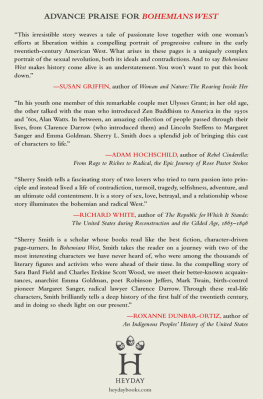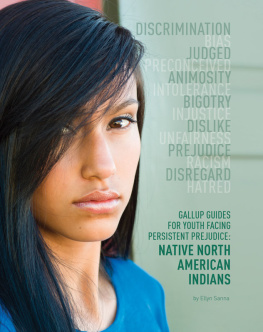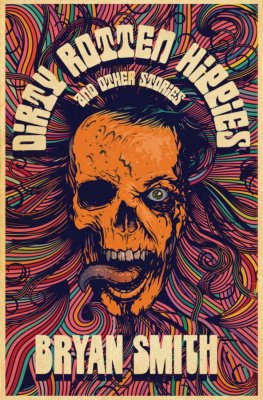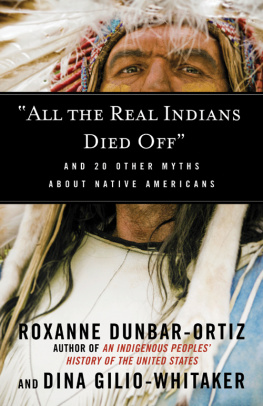Hippies, Indians, and the Fight for Red Power
Hippies, Indians, and the Fight for Red Power
SHERRY L. SMITH


Oxford University Press, Inc., publishes works that further
Oxford Universitys objective of excellence
in research, scholarship, and education.
Oxford New York
Auckland Cape Town Dar es Salaam Hong Kong Karachi
Kuala Lumpur Madrid Melbourne Mexico City Nairobi
New Delhi Shanghai Taipei Toronto
With offices in
Argentina Austria Brazil Chile Czech Republic France Greece
Guatemala Hungary Italy Japan Poland Portugal Singapore
South Korea Switzerland Thailand Turkey Ukraine Vietnam
Copyright 2012 by Oxford University Press, Inc.
Published by Oxford University Press, Inc.
198 Madison Avenue, New York, NY 10016
www.oup.com
Oxford is a registered trademark of Oxford University Press
All rights reserved. No part of this publication may be reproduced,
stored in a retrieval system, or transmitted, in any form or by any means,
electronic, mechanical, photocopying, recording, or otherwise,
without the prior permission of Oxford University Press.
Library of Congress Cataloging-in-Publication Data
Smith, Sherry L. (Sherry Lynn), 1951
Hippies, Indians, and the fight for red power / Sherry L. Smith.
p. cm.
Includes bibliographical references and index.
ISBN 978-0-19-985559-9 (hardcover : alk. paper)
1. Indians of North AmericaPolitics and government.
2. Indians of North AmericaGovernment relations1934
3. Indian activistsUnited StatesHistory20th century.
4. Church work with IndiansUnited StatesHistory20th century.
5. CountercultureUnited StatesHistory20th century.
6. Social movementsUnited StatesHistory20th century.
7. Protest movementsUnited StatesHistory20th century.
8. Alcatraz Island (Calif.)HistoryIndian occupation, 19691971.
9. Wounded Knee (S.D.)HistoryIndian occupation, 1973. I. Title.
E98.T77S57 2012
323.1197dc23 2011038767
1 3 5 7 9 8 6 4 2
Printed in the United States of America
on acid-free paper
For
my sister, Reverend Barbara Arlite Silver Smith
and
my brother, Brian Atwood Smith
CONTENTS
ACKNOWLEDGMENTS
To the historian, writing about the recent past poses particular challenges. Not the least of them is the fact that much of the documentation, which will eventually end up in historical archives, currently remains in private hands. Many of the people who figure in this books story, and are part of that generation whose name baby boomers evokes perpetual childhood, are only beginning to realize they have become historic. They have yet to collect, organize, and donate their papers to libraries. But studying them has its advantages. Many remain alive, engaged in the issues, and willing to talk. I am forever indebted to those who welcomed me to their homes or offices, answered my e-mails, or talked with me on the phone including Stewart Brand, Barbara Brenner, Marilyn Clement, Peter Coyote, Bill Davis, Candra Day, Alyce and Larry Frank, Craig Glassner, Wavy Gravy (Hugh Romney), Stuart Hardy, Eric Lambert, Lisa Law, Jack Loeffler, Peter Mackaness, Joseph Quinones, Diane Reyna, Sylvia Rodriguez, Joe Sando, Robby Stern, Dolores Martinez Romero Struck, Timothy Troy, and Richard White. I am particularly appreciative of Richard Whites generosity in sharing his unpublished memoir of his Franks Landing experiences and in bringing to our conversation the remarkable ability to separate the insights he offered as a primary source from the thoughtful analysis he provided as a fellow historian.
Of course archives and libraries proved essential to this project as well. Teresa Salazar and Walter Brim provided enormous help during an extended visit to the Bancroft Library at the University of California, Berkeley. Others who went beyond the call of duty to find sources include Debbie Miller, Minnesota Historical Society; Nurah-Rosalie Jeter, New York Public Librarys Schomberg Center for Research in Black Culture; Donald Davis, American Friends Service Committee Archives in Philadelphia; Brian Deshazor and Phil Robison at the Pacifica Radio Archives in Los Angeles; Ann Massman, University of New Mexicos Center for Southwest Research; Sandra Kroupa, University of Washington Special Collections; Louise Richards, University of Washington Fisheries and Oceanography Library; Daryl Morrison, Special Collections, University of California, Davis; Linda Long, University of Oregon Special Collections; Nita Murphy, Southwest Research Center of Northern New Mexico; and the staffs at the Seattle Municipal Archives, San Francisco Public Library, Taos Public Library, Santa Fe Public Library, Southern Methodist Universitys Fondren and DeGolyer Libraries, Stanford University Special Collections, and the National Archives in College Park, Maryland (where the Nixon Presidential Papers were housed during my research for this book). The librarians at the Teton County Library, Jackson, Wyoming, Inter-Library loan service efficiently handled my many requests during summer sojourns in Jackson Hole.
Several fellow historians and scholars in other disciplines led me to some wonderful sources I would have missed without their help. Fred Turner, Stanford University Communications Department, helped me negotiate the Stewart Brand Papers at Stanford. SMU Anthropology Professor Ben Wallace allowed me to read his unpublished manuscript interviews with Taos, New Mexico, commune dwellers, gathered in the early 1970s by Wallace and his research assistants. Historian Thomas Sugrue encouraged me to use the American Friends Service Committee archives in Philadelphia (a fabulous resource) and Western historian Leah Glaser shared some Hopi articles on hippies, from her own research in Arizona. Historian John Findlay suggested some Pacific Northwest sources I had missed. I am also grateful to Jeff Schulze, SMU Ph.D. and lecturer at University of Texas, Dallas, for providing me with a CD of Neil Young songs with Indian-related themes. Collecting photographs and images for this book has left me indebted to Stewart Brand, Lisa Law, Debbie Miller, Dean Rader, Ann Massman, Bree Stein, Claire-Lisa Benaud, Carolyn Marr, Christina Moretta, Mary Ann Kramer, David Kessler, Owen Luck, and Amanda Williford.
The research took me from coast to coast. Friends and family who generously shared their homes during some of my trips include Reverend Barbara Silver-Smith in Annapolis, Maryland; Drs. Brooke and Ed Love in Seattle, Washington; Dr. Ron and Bonnie Sanders in Palo Alto, and Guy and Gigi Anthony in Hillsborough, California. I first began this project at the University of Texas, El Paso, where a Deans Faculty Development grant funded my initial foray into New Mexicos counterculture past. Among my UTEP colleagues who encouraged this topic from the start were Cheryl Martin, Charles Martin, Sandy McGee-Deutsch, Carl Jackson, Kenton Clymer, Chuck Ambler, Ernie Chavez, and Nicole Etcheson. Although I left UTEP one dozen years ago, I still miss my UTEP friends and our Friday afternoon seminars. Most of the work on this book, however, took place after I moved to Southern Methodist University, a generous benefactor. Funds from the William P. Clements Department of History, the University Research Council, and a Gerald J. Ford Research Fellowship allowed research excursions as did the support I continue to receive as a University Distinguished Professor and the 2011 Dedman Family Distinguished Professor. Two Deans Special Research Leaves provided the essential time away from teaching and administrative duties to conduct research and write chapters. Thank you to History Department Chairs Jim Hopkins and Kathleen Wellman for supporting my leave requests and to Dedman College Deans Jasper Neel and Cordelia Candelaria and Provosts Ross Murfin and Paul Ludden for granting them. Mildred Pinkston, Administrative Assistant to the Chair in SMUs History Department, has helped me negotiate the administrative and bureaucratic processes at SMU with grace, wisdom, and skill. SMU History Department Administrative Assistant to the Faculty Sharron Pierson helped pull the manuscript and ancillary elements together for final production.
Next page







